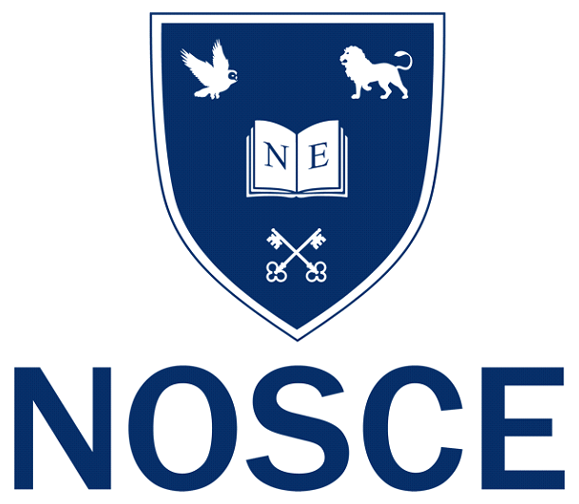13+ Admissions

We hereby provide a guide to the 13+ entry process for independent schools, covering the Common Entrance (CE) exam, individual school-specific assessments, subjects examined, preparation strategies, and additional insights.
The 13+ entrance process is a key admission point for independent senior schools, aimed at students transitioning into Year 9. It is typically taken in the summer term of Year 8, although some schools accept students in Year 7 for pre-tests, offering conditional places based on their performance.
- Common Entrance (CE):
Developed by the Independent Schools Examinations Board (ISEB), the CE exam is a standardized assessment used by many independent schools. It evaluates academic readiness across a broad range of subjects and aligns with National Curriculum and independent school syllabi.
CE is widely recognized and primarily used by traditional boarding schools.
- Schools’ Own 13+ Exams:
Highly selective schools such as Eton College, Winchester College, and St. Paul’s may administer their own bespoke exams instead of CE. These tests often involve additional or advanced subject-specific assessments, reasoning tests, and interviews.
The CE and individual school exams test a broad range of subjects to assess academic ability and potential.
Core Subjects
1. English
• Skills Assessed: Comprehension, creative writing, and grammar.
• Exam Format: Includes a passage for analysis, short questions, and an essay or creative writing task.
2. Mathematics
• Skills Assessed: Arithmetic, algebra, geometry, statistics, and problem-solving.
• Exam Format: Papers are tiered (Level 1, Level 2, and Level 3) to match student ability. Higher levels include complex algebra and geometry.
3. Science
• Skills Assessed: Biology, Chemistry, and Physics concepts, including experimental analysis.
• Exam Format: Often includes separate subject papers or integrated tests with structured questions.
Humanities and Languages
4. History: Focuses on essay writing, source analysis, and chronology.
5. Geography: Tests map skills, environmental studies, and data interpretation.
6. Religious Studies: Covers theological concepts, ethics, and scriptural analysis.
7. Modern Languages (e.g., French, Spanish): Evaluates vocabulary, grammar, reading, writing, and speaking skills.
Optional Subjects (if offered by the school):
• Latin/Classical Greek: Grammar, translation, and comprehension.
• Additional Languages: German, Mandarin, etc.
• Creative Subjects: Music theory, art portfolios, or drama may also be considered at some schools.
Academic Preparation
1. Start Early: Begin preparation in Year 7 to allow sufficient time for syllabus coverage and revision.
2. Use the ISEB Syllabus: Familiarize yourself with the official CE syllabus or the specific requirements of your target school.
3. Practice Past Papers: Past papers are invaluable for understanding question formats, timing, and expectations.
Subject-Specific Tips
• English: Develop essay-writing skills, focus on comprehension accuracy, and practice creative storytelling.
• Mathematics: Work through progressively harder problems, focusing on accuracy and speed.
• Languages: Regular vocabulary practice, speaking exercises, and listening tasks are essential.
• Humanities: Practice essay questions, source evaluations, and structured arguments.
Reasoning Skills
For schools that require reasoning tests:
• Verbal Reasoning: Strengthen vocabulary, logic, and word relationships.
• Non-Verbal Reasoning: Solve puzzles involving patterns, shapes, and spatial reasoning.
Interviews and Observation Activities
1. Interview Preparation:
• Be ready to discuss academic interests, hobbies, and aspirations.
• Practice answering open-ended questions confidently and clearly.
• Mock interviews can simulate the experience and build confidence.
2. Observation Activities:
• Schools may assess teamwork, creativity, and problem-solving through group activities.
• Encourage collaboration and attentive listening during preparation.
1. Application Deadlines:
•Registration deadlines vary by school but are often 12–24 months before the exams.
•Check with individual schools for specific timelines.
2.Pre-Testing:
•Some schools require pre-tests in Year 6 or 7, which include reasoning tests and interviews.
3.Flexibility with Levels:
•CE exams are tiered to accommodate students of varying abilities. Choose the level most suited to your child’s capabilities.
4.Results and Offers:
•CE results are typically sent to senior schools, which then confirm, waitlist, or reject candidates.
5.State School Applicants:
•Students from non-prep schools may need additional preparation, particularly in reasoning and less familiar subjects like Latin.
1. Tutors and Study Groups:
•Hiring experienced tutors or joining study groups can provide structured guidance.
2.School Visits:
•Visiting potential schools offers valuable insights into their environment, ethos, and expectations.
3.Technology and Apps:
•Use apps like Atom Learning or resources from ISEB for interactive preparation.
4.Mock Exams:
•Simulating exam conditions with timed tests helps alleviate stress and improve performance.
